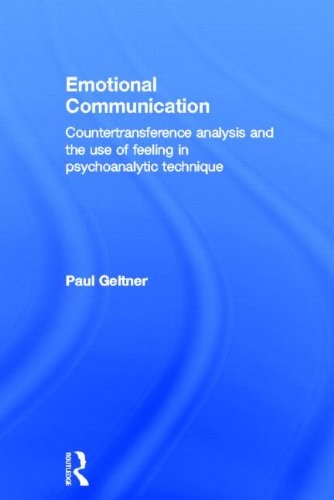

Most ebook files are in PDF format, so you can easily read them using various software such as Foxit Reader or directly on the Google Chrome browser.
Some ebook files are released by publishers in other formats such as .awz, .mobi, .epub, .fb2, etc. You may need to install specific software to read these formats on mobile/PC, such as Calibre.
Please read the tutorial at this link: https://ebookbell.com/faq
We offer FREE conversion to the popular formats you request; however, this may take some time. Therefore, right after payment, please email us, and we will try to provide the service as quickly as possible.
For some exceptional file formats or broken links (if any), please refrain from opening any disputes. Instead, email us first, and we will try to assist within a maximum of 6 hours.
EbookBell Team

4.3
78 reviewsWhat role does animal like and infantile communication play in life and in psychoanalysis? How are painful childhood experiences recreated with people who are nothing like the original family? What are the roles of loving and horrible feelings in psychoanalytic cure?
In Emotional Communication, Paul Geltner places the pre-linguistic type of communication that is shared with infants and animals at the core of the psychoanalytic relationship. He shows how emotional communication intertwines with language, permeating every moment of human interaction, and becoming a primary way that people involuntarily recreate painful childhood relationships in current life.
Emotional Communication integrates observations from a number of psychoanalytic schools in a cohesive but non-eclectic model. Geltner expands psychoanalytic technique beyond the traditional focus on interpretation and the contemporary focus on authenticity to include the use feelings that precisely address the client's repetitive patterns of misery. The author breaks down analytic interventions into their cognitive and emotional components, describing how each engages a different part of the client's mind and serves a different function. He explains the role of emotional communication in psychoanalytic technique both in classical interpretations and in non-interpretive interventions that use the analyst's feelings to amplify the therapeutic power of the psychoanalytic relationship.
Offering a clear alternative to both Classical and contemporary Relational and Intersubjective approaches to understanding and treating clients in psychoanalysis, Paul Geltner presents a theory of communication and maturation that will interest psychoanalysts, psychotherapists, and those concerned with the subtleties of human relatedness.